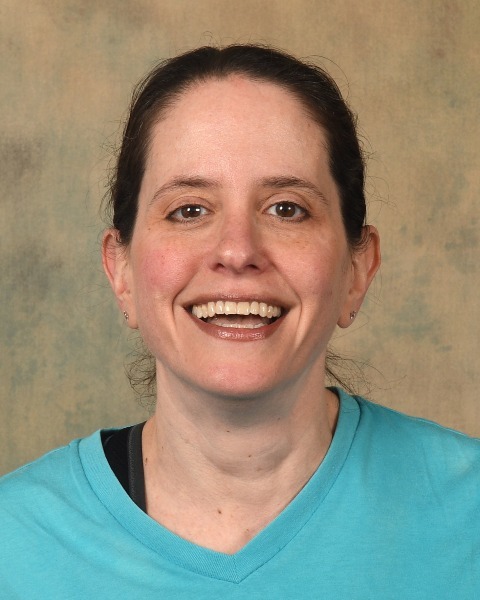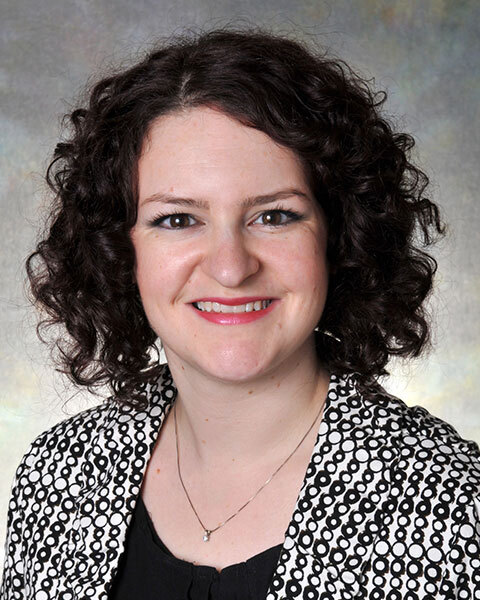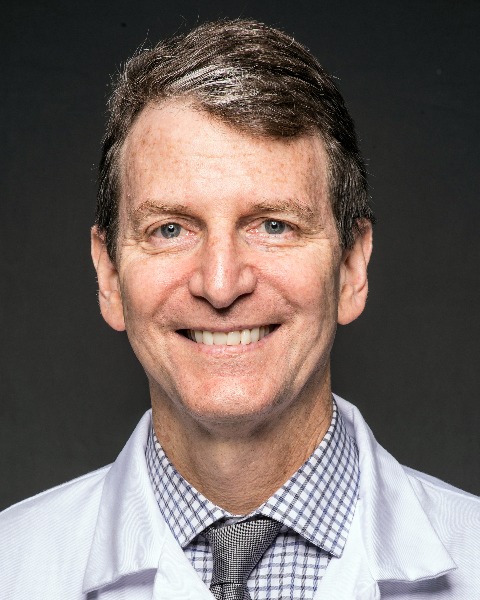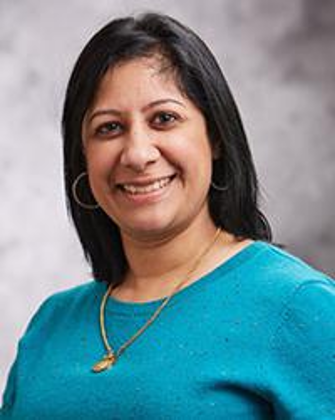
The Role of Opioid Metabolic Pathways in Interpreting Urine Drug Testing Results
- Registration Closed

The Role of Opioid Metabolic Pathways in Interpreting Urine Drug Testing Results
Recorded: Thursday, March 31, 2022 - Sunday, April 3, 2022
On-Demand Session
Overview
This 1-hour, on-demand session from the ASAM 53rd Annual Conference provides the knowledge needed to interpret both UDS and confirmatory urine drug testing of opioids.
This session provides an in-depth review of the principles of urine drug testing, both types of drug screening methods, opioid metabolic pathways, and potential pitfalls and interpretation errors that can occur with urine drug testing. Participants will learn about the possibility of misinterpretation of both urine drug screens and confirmatory liquid chromatography-mass spectrometry testing due to insufficient knowledge of the testing method and compound pharmacology involved. Participants in this session will hone their urine drug testing interpretation skills and clarify when further interpretation assistance is required.
The target audience for this Intermediate level session includes physicians, nurse practitioners, physician assistants, other clinicians, researchers, residents, fellows, students, and counselors.
This session addresses the following ACGME Competencies: Patient Care and Procedural Skills, Medical Knowledge, Practice-based Learning and Improvement, System Based Practice.
Learning Objectives
Upon completion, learners will be able to:
- Describe the strengths and limitations of each of the two main categories of urine drug testing methods (urine drug screens and confirmatory liquid chromatography-mass spectrometry)
- List examples of interpretation errors that can occur with confirmatory urine drug testing due to the presence of opioid manufacturing contaminants and minor metabolites of opioid metabolic pathways
- Identify resources for confirmatory urine drug testing interpretation assistance and the scenarios in which this may be required
Registration Rates
| Rate Description | Rate |
| ASAM Member | $29 |
| Non-Member | $39 |
| Associate Member | $19 |
| Resident Member* | $19 |
| Student Member* | $19 |
*Residents, Fellows-in-training, Interns, and Students must join ASAM to receive a discounted registration rate. Click here to become an ASAM member. National and Chapter membership dues apply. There is no charge for Students to become a Member, but verification of student status is required.
Membership Question? Call ASAM at 1.301.656.3920, email us, or view the ASAM website for more information.
Refunds & Cancellations
All ASAM e-Learning Center refund requests must be made in writing to education@asam.org within 90 days of purchase. Those requesting refunds for courses that are in progress will receive partial refunds or e-Learning Center credit. Automatic full refunds will be made for any course with a live-course component that has been cancelled.
Registration Deadline: 05/01/2025
Course Instructions
- Click on the Contents tab to watch the on-demand recording.
- Click Complete Post Test to answer multiple choice questions. Participants will have 10 attempts to pass and must answer 2 out of 3 questions correctly.
- Click Complete Evaluation to provide valuable activity feedback. Scroll down on all questions as there may be answer options that expand past the size of the window.
- Click the button Claim Medical Credits in the box titled Claim Credits & Certificate. Choose the type of credit and click submit. Click the button View/Print Certificate to save or print your certificate. You can view/print your certificate at any time by visiting the ASAM eLearning Center, clicking Dashboard, and clicking Transcript/Achievements.
Need Assistance?
For assistance logging in, accessing activities, claiming credit, or for other questions or concerns, please check the FAQ page or e-mail Education@ASAM.org
ASAM is proud to offer Essential Accessibility to ensure our website is accessible and functional for all our learners while providing free assistive technology for people with the widest possible range of abilities.

Stephanie T. Weiss
MD, PhD
Stephanie T. Weiss, MD PhD is the staff Research Physician serving the Translational Addiction Medicine Branch (TAMB) of the NIDA Intramural Research Program. After earning a Ph.D. in pharmaceutical chemistry, Dr. Weiss received her medical degree from Cleveland Clinic Lerner College of Medicine. She is board certified in emergency medicine and medical toxicology, a subspecialty that cares for patients with poisonings, environmental exposures, and overdoses. She subsequently completed a second fellowship in addiction medicine research and was selected to participate in the Boston University Research in Addiction Medicine Scholars Program prior to joining NIDA. Dr. Weiss assumes responsibility for providing optimal, safe, and ethical care to study participants and clinical support toward the TAMB mission conducting inpatient and outpatient proof-of-concept human laboratory studies. Her research interests include novel psychoactive substances, medication misuse, and improving interpretation of urine drug testing.
No relevant financial disclosures.

JoAn Laes
MD
JoAn Laes, MD is an addiction medicine physician and consulting medical toxicologist. Her focus is inpatient addiction medicine and toxicology consultation, and outpatient treatment of opioid and other substance use disorders. She is an owner at Twin Cities Toxicology, providing consultation, medical directorship, and expert opinion in the fields of addiction medicine and medical toxicology. She is board-certified in Internal Medicine, Addiction Medicine, and Medical Toxicology. She completed an internal medicine residency at Hennepin County Medical Center and medical toxicology fellowship at Regions Hospital in St. Paul, Minnesota. She has spoken nationally on the subjects of addiction medicine and toxicology.
No relevant financial relationships

Lewis S. Nelson
MD
Dr. Nelson is Professor and Chair of the Department of Emergency Medicine and Chief of the Division of Medical Toxicology at Rutgers New Jersey Medical School in Newark, NJ. He is a member of the Board of Directors of the American Board of Emergency Medicine and a Past-President of the American College of Medical Toxicology. He remains actively involved with CDC, FDA, DHS, and with several professional medical organizations including ASAM. Dr. Nelson is an editor of the textbook Goldfrank’s Toxicologic Emergencies and on the editorial boards of several journals. In addition to providing direct clinical care to patient in the ED and his efforts at New Jersey Poison Information & Education System, his specific expertise include the consequences of licit and illicit opioids, emerging drugs of abuse, opioid stewardship, and alcohol withdrawal.

Soumya Pandalai
MD, FACP, DFASAM
Dr. Soumya L. Pandalai is a board certified physician in the field of Internal Medicine and Addiction Medicine. She currently works at Banner University Medical Center Phoenix (BUMCP) in Phoenix, Arizona as a specialist in Addiction Medicine and provides both inpatient consultation services and outpatient treatmentr to persons with Substance Use Disorders (SUDs). Dr. Pandalai enjoys the clinical practice of Addiction Medicine and finds the neuroscience of addiction to be intellectually stimulating and challenging to observe the health-effects that can result from various aspects of human behavior. It is also immensely rewarding to connect with patients at different stages of their recovery process and help them along their path toward healing. She hopes to inspire people to view addiction from a different lens and apply principles of substance use and reward pathways to general aspects of human motivation and other medical illnesses. Dr. Pandalai is proud and grateful to work with an interdisciplinary team of hospital staff, social workers, counselors and other medical providers to create a more inclusive and health-focused model for substance use treatment, chronic pain and use of treatment options like tele-health to advance the care of vulnerable patient populations.
No relevant financial disclosures.
CME, CE, CEU and Other Credit Types

ACCME Accreditation Statement
The American Society of Addiction Medicine is accredited by the Accreditation Council for Continuing Medical Education (ACCME) to provide continuing medical education for physicians.
AMA Credit Designation Statement
The American Society of Addiction Medicine designates this enduring material for a maximum of 1 AMA PRA Category 1 Credits™. Physicians should claim only the credit commensurate with the extent of their participation in the activity.
NAADAC, the Association for Addiction Professionals
This activity has been approved by the American Society of Addiction Medicine, as a NAADAC Approved Education Provider, for educational credits. NAADAC Provider #295, ASAM is responsible for all aspects of the programming.
California Association for Drug/Alcohol Educators (CAADE)
This educational program is approved by CAADE: #CP40 999 1222.
California Association of DUI Treatment Centers (CADTP)
This educational program is approved by CADTP: #205.
California Consortium of Addiction Programs and Professionals (CCAPP)
This educational program is approved by CCAPP: #OS-20-330-1222.
Continuing Education Credits (CEUs)
Non-physician participants will receive a certificate of attendance upon completion of the activity and an online evaluation confirming their participation. Participants should submit his/her certificate of attendance to their professional organization/institute.
Maintenance of Certification (MOC) or Continuing Certification Programs (CCP)
American Board of Medical Specialties (ABMS)
Through the American Board of Medical Specialties (“ABMS”) ongoing commitment to increase access to practice relevant Continuing Certification Activities through the ABMS Continuing Certification Directory, The ASAM 53rd Annual Conference has met the requirements as a MOC Part II CME Activity (apply toward general CME requirement) for the following ABMS Member Boards: Allergy and Immunology, Anesthesiology, Colon and Rectal Surgery, Family Medicine, Medical Genetics and Genomics, Nuclear Medicine, Physical Medicine and Rehabilitation, Plastic Surgery, Preventive Medicine, Psychiatry and Neurology, Radiology, Thoracic Surgery, Urology
American Board of Preventive Medicine (ABPM)
The American Board of Preventive Medicine (ABPM) has approved this activity for a maximum of 1 credit towards ABPM MOC Part II requirements.
American Board of Anesthesiology (ABA)
This activity contributes to the CME component of the American Board of Anesthesiology’s redesigned Maintenance of Certification in Anesthesiology TM (MOCA®) program, known as MOCA 2.0®.
American Board of Pediatrics (ABP)
Successful completion of this CME activity, which includes participation in the activity, with individual assessments of the participant and feedback to the participant, enables the participant to earn a maximum of 1 MOC point in the American Board of Pediatrics’ (ABP) Maintenance of Certification (MOC) program. It is the CME activity provider’s responsibility to submit participant completion information to ACCME for the purpose of granting ABP MOC credit.
American Board of Internal Medicine (ABIM)
Successful completion of this CME activity, which includes participation in the evaluation component, enables the participant to earn up to 1 Medical Knowledge MOC point in the American Board of Internal Medicine’s (ABIM) Maintenance of Certification (MOC) program. Participants will earn MOC points equivalent to the amount of CME credits claimed for the activity. It is the CME activity provider’s responsibility to submit participant completion information to ACCME for the purpose of granting ABIM MOC credits.
American Board of Surgery (ABS)
Successful completion of this CME activity, which includes participation in the evaluation component, enables the learner to earn credit toward the CME and/or Self-Assessment requirements of the American Board of Surgery’s Continuous Certification program. It is the CME activity provider's responsibility to submit learner completion information to ACCME for the purpose of granting ABS credit.
American Board of Psychiatry and Neurology (ABPN)
Successful completion of this CME activity can be used to satisfy the American Board of Psychiatry and Neurology’s (ABPN) CME requirement for Maintenance of Certification program.
American Board of Addiction Medicine (ABAM)
Successful completion of this activity can be used to satisfy the American Board of Addiction Medicine (ABAM) Tmoc credit requirements.
Royal College of Physicians and Surgeons of Canada (RCPSC)
Royal College Fellows can use participation in Accredited Continuing Medical Education to earn Section 3 Credits.
Disclosure Information
In accordance with disclosure policies of ASAM and the ACCME, the effort is made to ensure balance, independence, objectivity, and scientific rigor in all CME activities. These policies include mitigating all possible relevant financial relationships with ineligible companies for the Planning Committees and Presenters. All activity Planning Committee members and Faculty have disclosed relevant financial relationship information. The ASAM CME Committee has reviewed these disclosures and determined that the relationships are not inappropriate in the context of their respective presentations and are not inconsistent with the educational goals and integrity of the activity.

